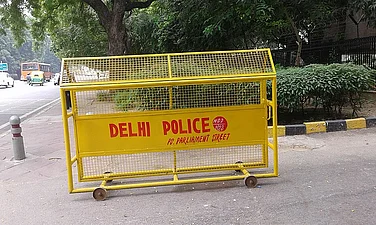News travels to us that events in West Bengal have overtaken the optimism that some of us have experienced during trips to the state. We are concernedabout the rancour that has divided the public space, created what appear to be unbridgeable gaps between people who share similar values. It is thisthat distresses us. We hear from people on both sides of this chasm, and we are trying to make some sense of the events and the dynamics. Obviously, ourdistance prevents us from saying anything definitive.
We continue to trust that the people of Bengal will not allow their differences on some issues to tear apart the importantexperiments undertaken in the State (land reforms, local self-government).
We send our fullest solidarity to the peasants who have been forcibly dispossessed. We understand that the government has promised not to build achemical hub in the area around Nandigram. We understand that those who had been dispossessed by the violence are now being allowed back to their homes,without recrimination. We understand that there is now talk of reconciliation. This is what wefavour.
The balance of forces in the world is such that it would be impetuous to split the Left. We are faced with a world power thathas demolished one state (Iraq) and is now threatening another (Iran). This is not the time fordivision when the basis of division no longer appears to exist.
Noam Chomsky, author, Failed States: The Abuse of Power and the Assault onDemocracy;
Tariq Ali, author, Pirates of the Caribbean: Axis of Hope and editor, New LeftReview;
Howard Zinn, author, A Power Governments Cannot Suppress;
Susan George, author, Another World is Possible if, and Fellow, Transnational Institute;
Victoria Brittain, co-author, Enemy Combatant: A British Muslim¹s Journey to Guantanamo and Back, former editor,Guardian;
Walden Bello, author, Dilemmas of Domination: The Unmaking of the AmericanEmpire, and Chair, Akbayan, the fastest growing party in the Philippines;
Mahmood Mamdani, author, Good Muslim, Bad Muslim: America, The Cold War and the Roots ofTerror;
Akeel Bilgrami, author, Politics and the Moral Psychology of Identity;
Richard Falk, author, The Costs of War: International Law, the UN and World Order AfterIraq;
Jean Bricmont, author, Humanitarian Imperialism: Using Human Rights to SellWar;
Michael Albert, author, Parecon: Life After Capitalism, and editor, ZNET;
Stephen Shalom, author, Imperial Alibis: Rationalizing US Intervention After the ColdWar;
Charles Derber, author, People Before Profit: The New Globalization in an Age ofTerror, Big Money and Economic Crisis;
Vijay Prashad, author, The Darker Nations: A People¹s History of the ThirdWorld.
Since then, one of the signatories has dissociated herself from the aboveletter:
To My Friends In India:
Without wishing to place responsibility on anyone but myself, I want toapologise for having signed the common letter concerning Nandigram and herebywithdraw my signature. I signed because the statement seemed reasonable,recognised that the signatories "could not say anything definitive", seemedcompatible with principles like left unity and non-violence which I try touphold and, above all, had been previously signed by people I greatly admire andrespect. Due to a certain urgency, I gave my name without consulting friends inIndia, particularly the two Indian Fellows of the Transnational Institute,Praful Bidwai and Achin Vanaik, as I ought normally to have done.
Now I have received further information from Indians who have regretted mysignature and, while exercising great comradely restraint towards me personally,have pointed to the recent tragic events in Nandigram as unequivocally theresponsibility of the CPI[M]. All the communications sent to me blame thegovernment, but having consulted other signatories, I learn that some of themhave received thanks and letters of support, also from India.
While my instinct is quite naturally to side with those who have written tome personally, particularly my TNI comrades, I regret above all that I waspresumptuous enough to comment, however mildly, on a situation I was not, and amnot, in any position to judge. I hope my Indian friends will forgive thispresumption and accept my regrets for having signed a letter which has been usedpolitically in India in ways I cannot condone and do not approve.
In solidarity,
Susan George






















